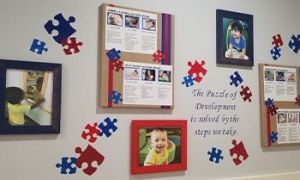

As of 2024–2025, new national regulations across Australia have significantly tightened restrictions on smoking and vaping in and around early childhood education and care (ECEC) settings. These changes reflect a growing commitment to child safety, educator well-being, and public health, and they’re now embedded in the Education and Care Services National Regulations and the National Quality Standard (NQS).
The following Biting Policy Example tailored for early childhood education and care (ECEC) services in Australia, drawing on best practice from ACECQA, Child Australia, and service-level procedures.
Here’s a clear, sector-aligned policy template tailored for early childhood education and care services, ensuring compliance with the upcoming 2026 NQF reforms and reinforcing your commitment to child safety and educator well-being.
Here's a comprehensive, sector-responsive policy and procedure framework for the safe use of digital technologies—including CCTV—tailored for early childhood education settings. It balances child safety, educator well-being, regulatory compliance, and ethical transparency.
Thanks to the new National Model Code and upcoming regulatory changes under the National Quality Framework (NQF), early childhood services across Australia must now implement robust policies for the taking, use, storage, and destruction of images and videos of children. Here's a sample policy template aligned with the latest updates, effective from 1 September 2025.
Here’s a comprehensive Mobile Phone and Smart Watch Policy tailored for early childhood education and care (ECEC) services in Australia, aligned with the latest 2025 legislative reforms and National Quality Framework (NQF) updates.
The Four Eyes Policy—also known as the Four Eyes Principle or Two-Person Rule—is a safeguarding and accountability measure that requires two adults to be present or able to observe during certain activities involving children. In childcare, especially in high-risk contexts like intimate care or one-on-one interactions, this principle helps protect both children and educators.
The Telethon Kids Institute has created the Play Active Program which contains a physical activity policy to assist services in putting their policy into practice.
There is enough evidence in the history of the world to show the steep cost that societies pay when racism in its processes and institutions is not addressed and combated. In Australia, all early childhood learning frameworks mandate that all children should feel safe, secure and supported in their learning environment. Additionally, learning frameworks are underlined by the principle of respect for diversity in all forms. The following article provides strategies to ensure zero tolerance for racism in early childhood settings.
 As an Educator in Australia, your pay rate falls under the Children’s Services Award 2010. This award states the minimum amount that an employer can… Read More
As an Educator in Australia, your pay rate falls under the Children’s Services Award 2010. This award states the minimum amount that an employer can… Read More
 When working as a qualified Early Childhood Teacher (with a university degree) within a service, your rate of pay will come from the Educational Services… Read More
When working as a qualified Early Childhood Teacher (with a university degree) within a service, your rate of pay will come from the Educational Services… Read More
 When working as a Diploma Qualified Educator your pay rate is from the Children's Services Award 2010. This Award states your minimum rate of pay… Read More
When working as a Diploma Qualified Educator your pay rate is from the Children's Services Award 2010. This Award states your minimum rate of pay… Read More
 When working as a Cert 3 Qualified Educator, your pay rate is from the Children's Services Award 2010. This Award states your minimum rate of… Read More
When working as a Cert 3 Qualified Educator, your pay rate is from the Children's Services Award 2010. This Award states your minimum rate of… Read More
 Educational Leaders play a crucial role in their early childhood service by ensuring that the educational program aligns with best practices and supports the holistic… Read More
Educational Leaders play a crucial role in their early childhood service by ensuring that the educational program aligns with best practices and supports the holistic… Read More
 In early childhood education and care, ratios are more than a technicality—they are a frontline safeguard. Every child deserves responsive supervision, emotional connection, and developmental… Read More
In early childhood education and care, ratios are more than a technicality—they are a frontline safeguard. Every child deserves responsive supervision, emotional connection, and developmental… Read More
 With the new national child safety reforms kicking in on 1 September 2025, early childhood services like yours have a real opportunity to lead the… Read More
With the new national child safety reforms kicking in on 1 September 2025, early childhood services like yours have a real opportunity to lead the… Read More
 Here’s a comprehensive Mobile Phone and Smart Watch Policy tailored for early childhood education and care (ECEC) services in Australia, aligned with the latest 2025… Read More
Here’s a comprehensive Mobile Phone and Smart Watch Policy tailored for early childhood education and care (ECEC) services in Australia, aligned with the latest 2025… Read More
 The Sea of Fish Challenge is a national initiative that invites children, educators, families, and communities to create and display fish artworks as a symbol… Read More
The Sea of Fish Challenge is a national initiative that invites children, educators, families, and communities to create and display fish artworks as a symbol… Read More
 Across the early childhood education and care sector, educators are sounding the alarm: current staffing ratios are insufficient to deliver safe, meaningful, and developmentally appropriate… Read More
Across the early childhood education and care sector, educators are sounding the alarm: current staffing ratios are insufficient to deliver safe, meaningful, and developmentally appropriate… Read More

The following lists the sub-outcomes, examples of evidence when children can achieve each sub-outcome and...
See more...
This is a guide for educators on what to observe under each sub learning outcome...
See more...
Using blurbs with wall displays in early childhood settings offers a powerful blend of pedagogical...
See more...© 2009-2025 Aussie Childcare Network Pty Ltd. All Rights Reserved.

